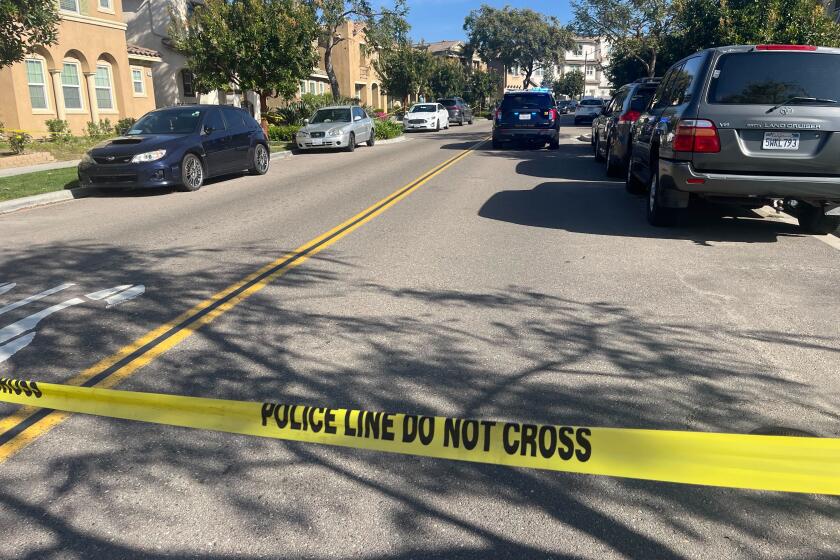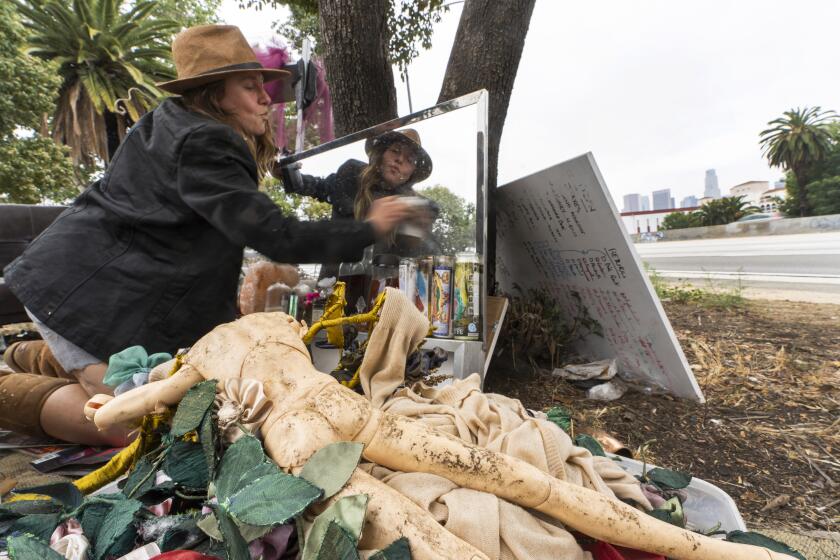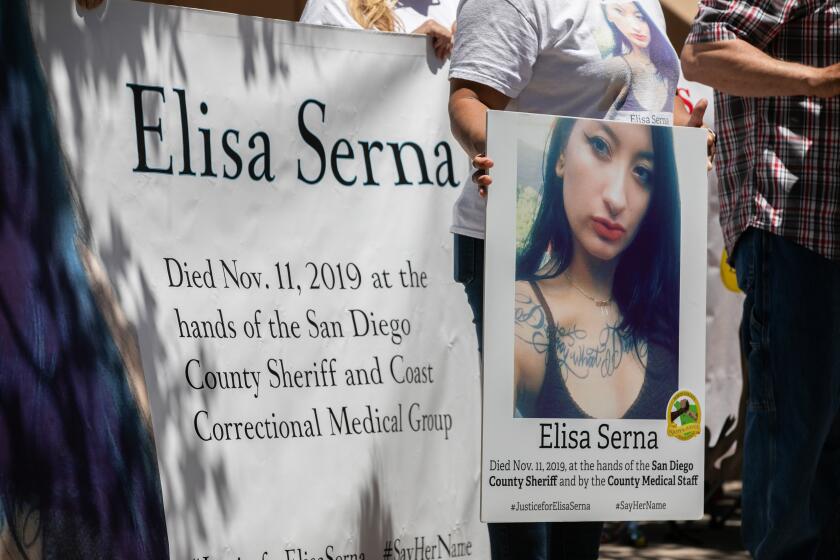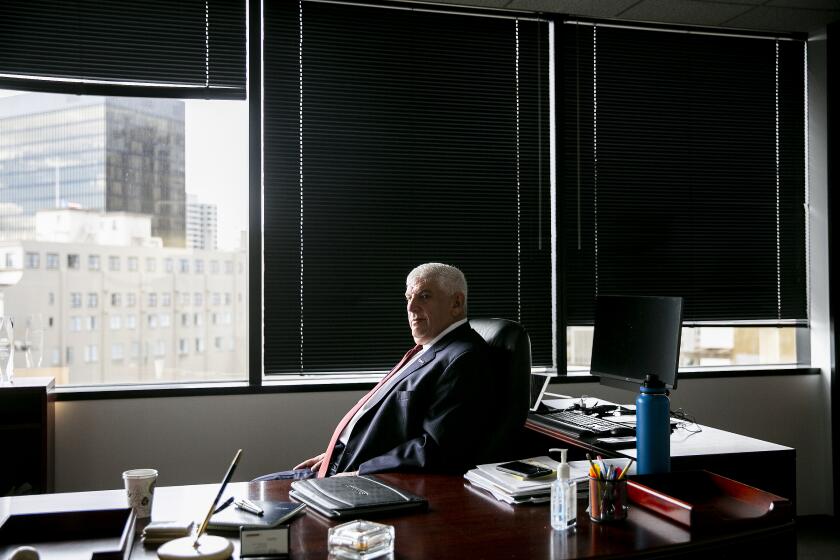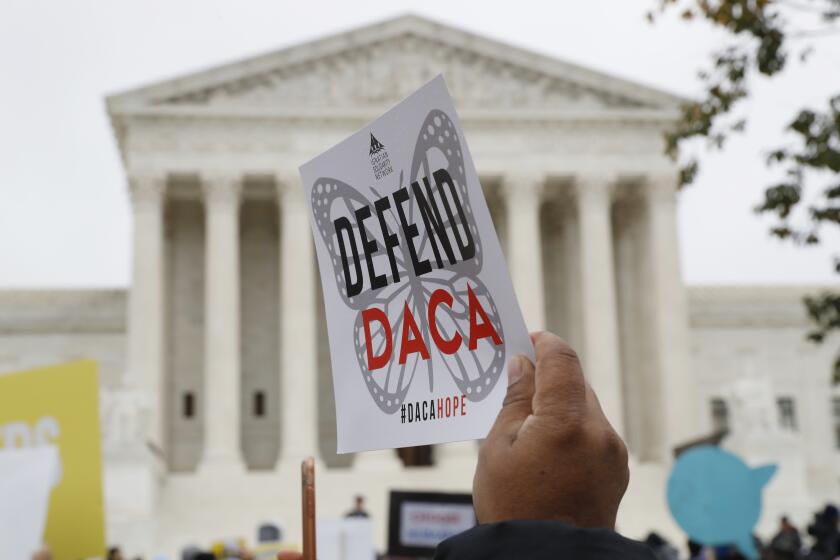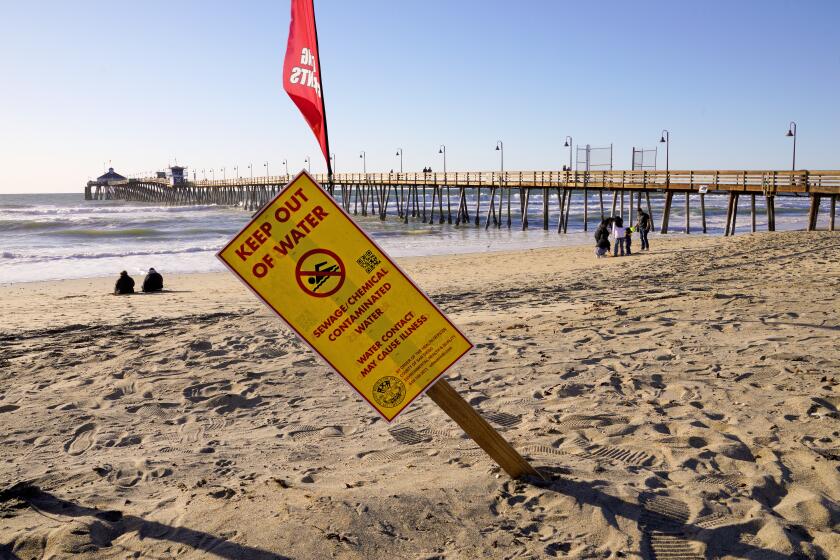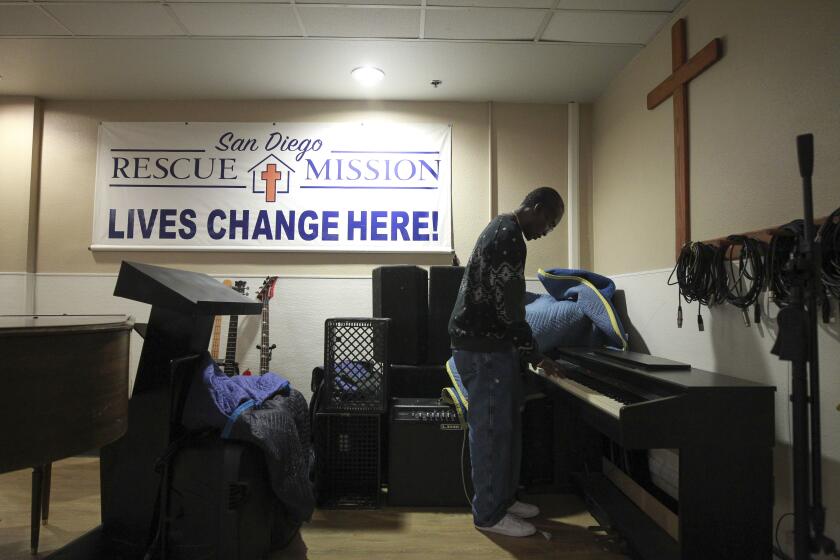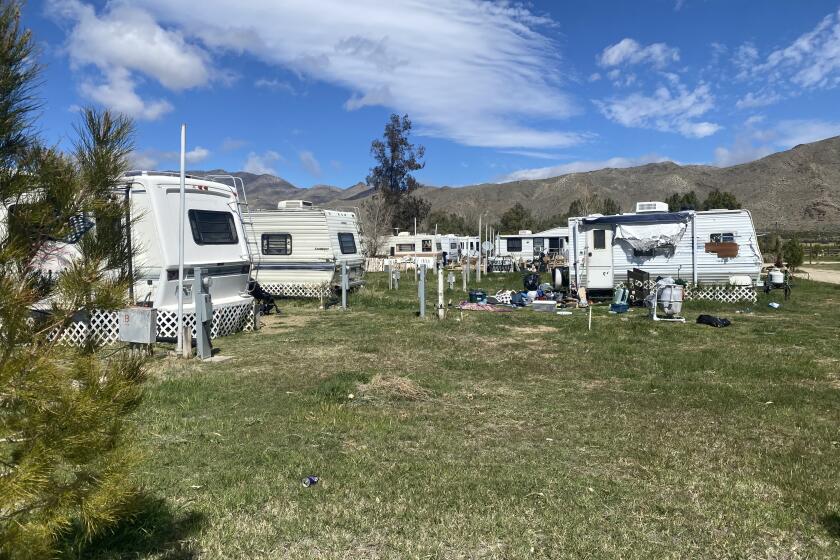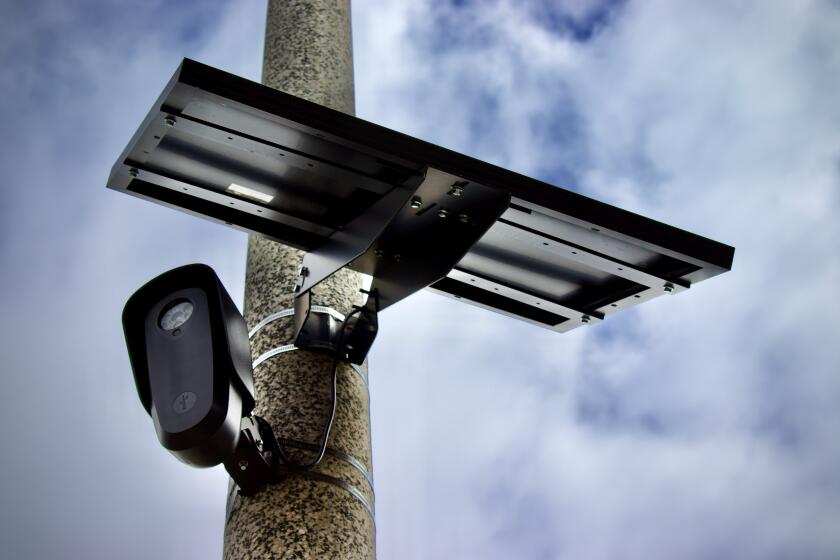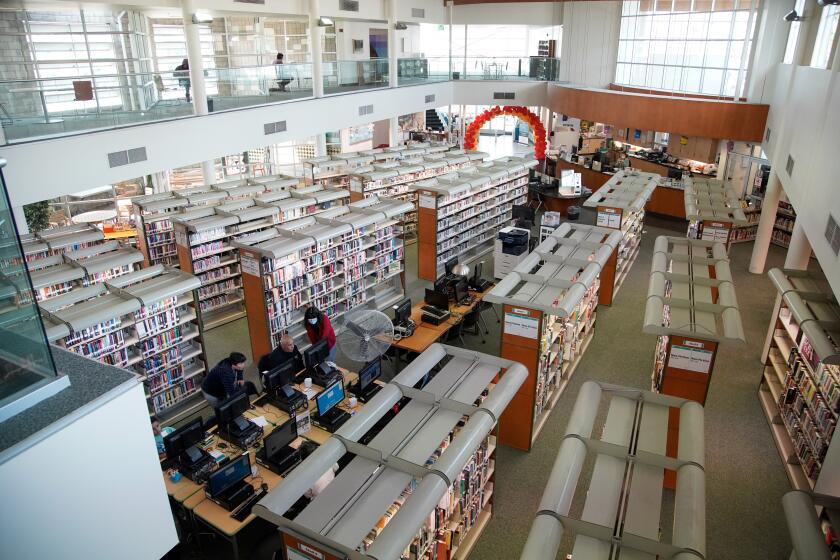2022 election: Q&A with Ron Galperin, California controller candidate

There are six candidates for controller on the June 7 ballot: fiscal adviser/educator Lanhee Chen, a Republican; California State Board of Equalization member Malia Cohen, Los Angeles city Controller Ron Galperin, state Sen. Steve Glazer of Orinda and chief financial officer Yvonne Yiu, all Democrats, and financial analyst Laura Wells, a Green Party candidate. The top two vote-getters will advance to a Nov. 8 runoff election.
The San Diego Union-Tribune Editorial Board sent six-question surveys to each candidate and is publishing their responses here.
If you have comments or questions about the election or any of the candidates after reading this interview, please email Editorial and Opinion Director Matthew T. Hall at matthew.hall@sduniontribune.com.
Below are Ron Galperin’s responses and a link to other responses.
Q: What in your background makes you the best candidate for this job?
A: Having served nine years as the elected controller of California’s largest city, I know the job, its challenges, its opportunities and its responsibilities. I am the one candidate running for the office of state controller who has actually served in the capacity of a controller.
As the controller for the city of Los Angeles, I have brought radical transparency to our city, including our open checkbook, putting every account online, trackers for every dollar spent and dashboards measuring performance. I will do the same for California.
Serving as L.A.’s chief financial officer, I have been an independent voice for fiscal responsibility. I have held city officials and departments accountable to taxpayers, changing the way we do our audits — with a strong focus on benchmarking, innovation, best and next- business practices.
When I was first elected in 2013, I brought to the job of L.A. controller experience as a journalist, an attorney and a businessperson — along with an understanding of government, having led two city commissions to improve our finances and to innovate how we do business. These experiences provide me with a unique perspective and ability to bring accountability, transparency and effective leadership to the job of state controller.
I also understand and represent the vibrant diversity of California, as L.A.’s first citywide-elected LGBTQ+ official and the son of immigrants and of a Holocaust survivor. And as the father of twins with my husband, I am committed to creating a better future for the next generation of Californians.
Lanhee Chen, Malia Cohen, Ron Galperin, Steve Glazer, Laura Wells and Yvonne Yiu are running for state controller
Q: Assess outgoing Controller Betty Yee. What did she do well or not do well?
A: Each person who serves in the role of controller has the opportunity to bring his/her particular experiences and priorities to the job.
I believe Controller Yee has been a committed steward for California taxpayers — in the operations of the office and in her role on more than six dozen boards, commissions and financing authorities. She has led on issues of the environment, reunited beneficiaries with their unclaimed property and been willing to question actions and contracts of her fellow statewide officials.
The advent of COVID-19 brought some notable challenges to the State Controller’s Office, as noted most recently in the news. This has underlined how crucial it is for the controller and the Controller’s Office to be an example of integrity and accountability — along with the importance of maintaining internal controls and separation of state powers, even — and especially — in times of crisis.
My intent is to bring my technology orientation to address long-standing systems failures, and to bring much-needed transparency, an open checkbook, a platform for transparency for local jurisdictions, performance dashboards and more performance-based auditing.
Q: California’s computer payroll system is outdated, and prior controllers have been unable to fix the problem. What, if anything, would you do?
A: There have been quite a number of large-scale technology blunders by the state including Medi-Cal, the Employment Development Department, the Department of Motor Vehicles and the Financial Information System for California or Fi$Cal system.
I’ve overseen significant upgrades and improvements to our financial management systems and helped to transition from many disparate “legacy systems” into more centralized and nimble platforms for managing financial data. I intend to bring my experience in dealing with these very complex systems to my work at the state level.
My office has also spearheaded the launch of a new payroll system for 45,000 employees. We’ve done so through the creation of a governing committee that brought together stakeholders from departments across the city to make sure that we were meeting all of their needs — and in partnership with tech providers.
In Los Angeles, I also led the city’s open data initiative when I first took office as controller. I have experience in using business intelligence tools, artificial intelligence, data mining and a whole variety of different tools to take information and really make it useful and actionable. I intend to do the same for our state.
Q: What are three areas in the office where you would make major changes?
A: Transparency. Our democracy is at stake now, and we must rebuild trust in government. It is crucial we make transparent how tax dollars are being spent and the results achieved. I intend to use technology to bring the office into the modern era with much-needed transparency on producing audits that are not just financial but also focused on performance. As L.A. controller, I launched the first open data portal to detail how every tax dollar is spent on goods, services and city employee salaries, and provide metrics to measure how equitably city departments serve communities. As state controller, I will bring the same level of transparency to state government.
Performance audits and dashboards. My office has issued numerous financial and performance audits on improving public safety, street maintenance, homelessness/housing and outreach, the Department of Water and Power, workers’ compensation costs, illegal dumping pickup, airport operations, trees, emergency services and more. Audits by their very nature look backward, when we track data in real time, we can uncover waste and fraud before it escalates. As state controller, I will create publicly accessible real-time dashboards, open data, maps and tools to hold government accountable.
Fiscal Red Teams. Beyond publishing annual reports which provide financial snapshots of California’s thousands of local government agencies, within one year of taking office, I will create multidisciplinary teams of auditors, risk management specialists and municipal finance experts. These teams will be deployed to at-risk cities, counties and special districts to identify the root causes of their financial problems.
Q: Past controllers have not been aggressive watchdogs who have raised concerns about state spending, as seen elsewhere in the U.S. What approach would you take to watchdog and auditing aspects of the job?
A: As the chief financial officer of the nation’s second-biggest city, I have a proven track record of challenging the status quo.
I created a transparency website and virtual checkbook detailing every dollar spent in L.A. in the last 10 years.
I put online all of L.A.’s accounts — with the name, email and phone numbers of the staff persons responsible.
I called out the excessive costs associated with creating new affordable housing.
I fought waste, fraud and abuse with a dedicated division, quarterly reports and aggressive investigations.
I pursued the truth with purposeful inquiries — lawsuits and subpoenas when needed.
I have partnered with yet always held accountable other elected officials, our departments, vendors, labor and employees.
I have worked with Democrats, Republicans and independents to make sure that our money is accounted for and is being used efficiently.
As the taxpayer’s watchdog, I’ve held politicians accountable through reports on homelessness spending. Last week, I announced my Homelessness & Affordable Housing action plan for transparency and accountability. Within 60 days of assuming office, I will deploy strike teams to audit both state and local spending relating to affordable housing and homelessness. My audits will measure the costs and results.
Within my first year in office, I will create a centralized hub where the public and our state decision-makers can view comprehensive reporting on how their tax dollars are being allocated in projects related to homelessness and affordable housing.
As state controller, I will continue to be a relentless and independent force when conducting audits.
Q: Why should voters choose you over your opponents?
A: As controller for the city of Los Angeles, I understand the scope and limits of the job, how to use the power of the office and how to do this job well. My office has issued numerous financial and performance audits focused on improving the efficiency and accountability of government — and on delivering quality services.
Beyond having an understanding of the role, I am passionate about the work. I have reimagined what a controller’s office could be — and I would like to do the same for the state. In L.A., I’ve used my office to be an advocate for increasing equity through our city’s first Equity Index and reports on pay equity and diversity with equity. During the COVID-19 pandemic, we mapped thousands of free food distribution centers, and we have continued to update this resource.
Mine is an aggressive agenda — to scrutinize spending and to hold our state (including myself and my office) accountable for producing results. I want the Controller’s Office to be the place for people to see information that they trust, for ideas and for solutions to our greatest challenges.
As state controller, I will sit on over 70 boards and commissions, including several incredibly powerful commissions that are responsible for the management and protection of California’s precious natural and cultural resources, which will provide an opportunity to demand greater corporate accountability. I will continue my work of ensuring environmental equity and ensuring that underserved communities are protected and provided the same benefits regardless of race, income or sexual orientation.
Get Weekend Opinion on Sundays and Reader Opinion on Mondays
Editorials, commentary and more delivered Sunday morning, and Reader Reaction on Mondays.
You may occasionally receive promotional content from the San Diego Union-Tribune.


